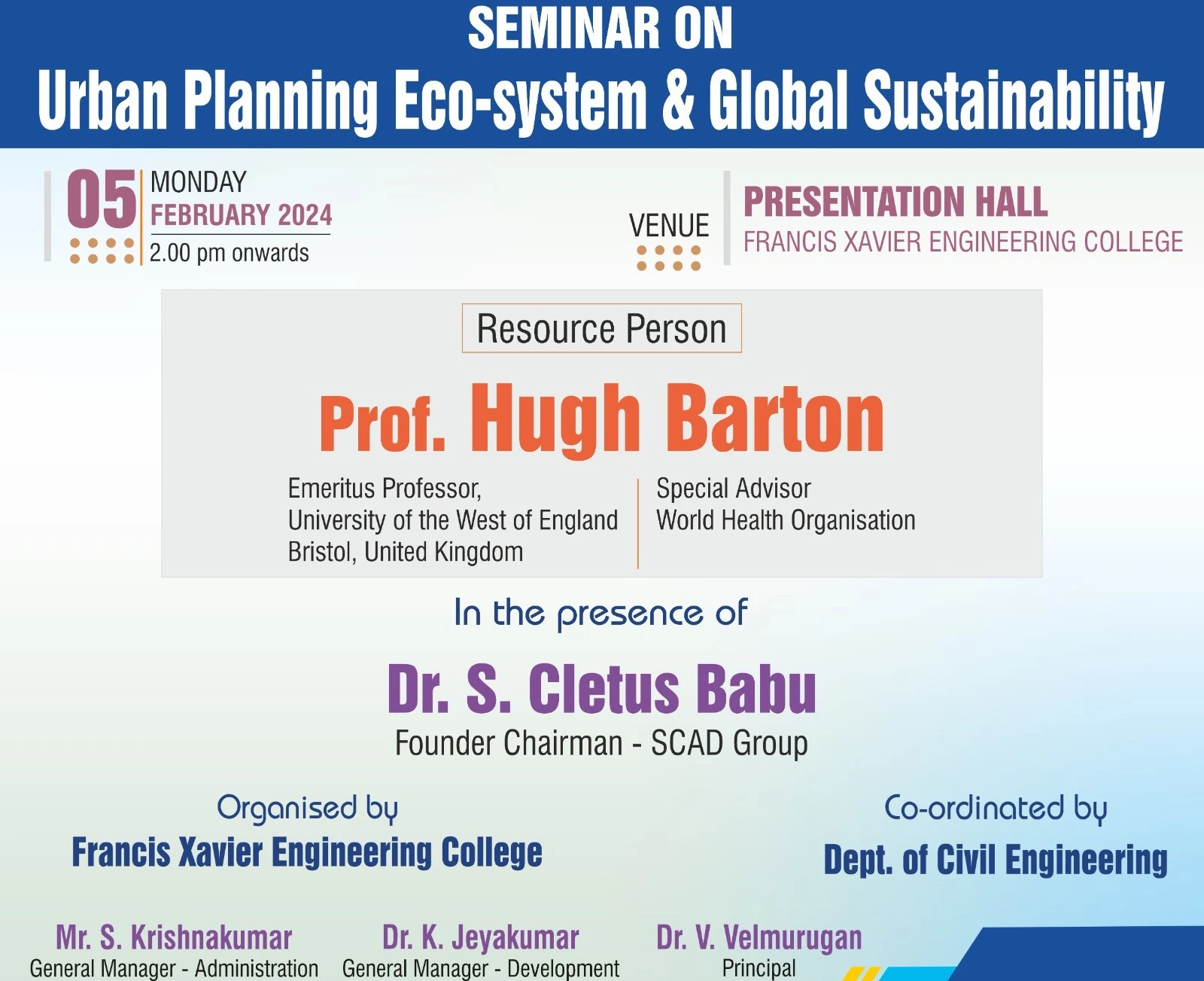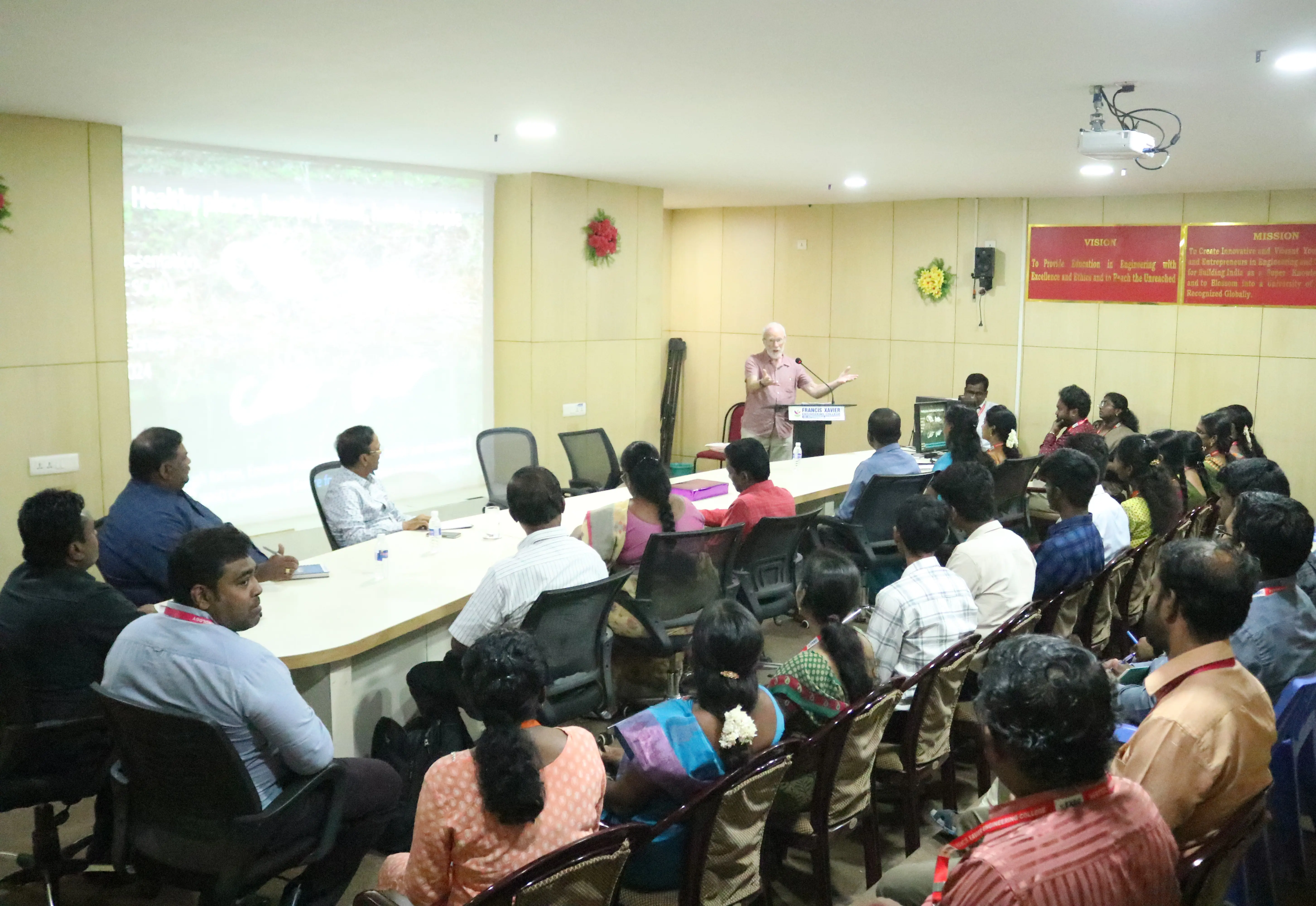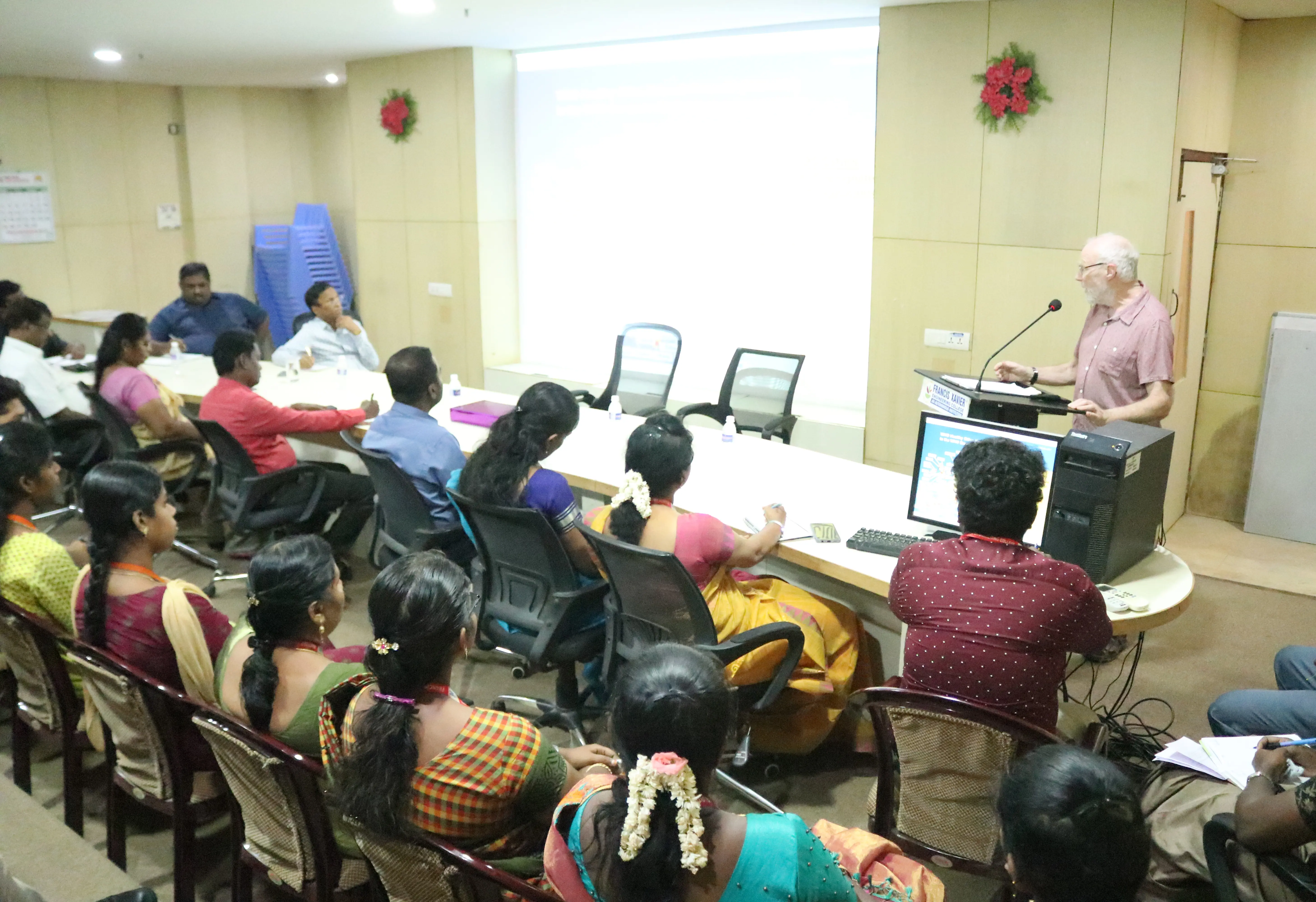
On 5th February 2024, Entrepreneurship Development Cell and IIC in association with Department of Civil Engineering organized a seminar on Urban Planning Eco-System & Global Sustainability. The resource person for the program was Prof. Hugh Barton, Emeritus Professor, University of the West of England, Bristol, United Kingdom and Special Advisor, World Health Organization. Dr. S. Cletus Babu, Founder Chairman – SCAD Group of Institution, also made his presence for the seminar. The session was coordinated by the Department of civil engineering, FXEC. 41 participants attended the seminar.
The resource person stated that the strategies for creating resilient and sustainable cities that can mitigate the challenges posed by rapid urbanization and climate change. The seminar explored innovative approaches for designing and implementing sustainable infrastructure, including green buildings, renewable energy systems, and efficient transportation networks.
The resource person also summarizes about the importance of entrepreneurship and its role in the economical development of the society. By incorporating entrepreneurship into economic development the national as well as global development could be achieved. The knowledge and the experiences gained by him in the socio-economic development was shared to the participants. And he added that Entrepreneurship is a driving force behind economic development, fostering innovation, creating jobs, and driving wealth creation. By supporting entrepreneurship through policies, education, and access to resources, societies can unlock its full potential to drive sustainable growth and prosperity.
He emphasized that the Entrepreneurship can have significant social impact, addressing societal challenges through innovative solutions. Social entrepreneurship, in particular, focuses on creating businesses with a dual mission of profit and social good. Finally, he added that entrepreneurship requires a supportive ecosystem comprising access to capital, a conducive regulatory environment, access to markets and talent, education and skills development, an innovation ecosystem, a risk-taking culture, supportive networks, infrastructure development, and government policies and support. These requirements collectively contribute to fostering entrepreneurship and driving economic development.

